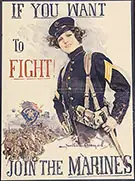Vladimir Lenin
Vladimir Lenin was born in what was then known then as Simbirsk, Russia on April 10, 1870. His given name was Ulianov and was the son of Ilia Nikolaevich Ulianov. His father held a role in the educational system of the local region. Because his father was a member of the regional nobility, young Lenin did not grow-up in the poor class of Russia. In fact, he was considered to be privileged in much of his young life.
His love for reading and literature came from both of his parents. He was gifted in the languages of Greek and Latin in his high school years. Young Lenin never failed to impress his parents with knowledge and ability to reason. This gift would translate into a huge benefit for Lenin in the years to follow.


The views of Lenin towards pushing for the rights of the working class began to take hold on Lenin as a youth. His father, an inspector of schools was being threatened with early retirement. Apparently, the ruling gentry and government of Russia were concerned that public education would become a harm to the current way of life.
This philosophy of not trusting the ruling class of Russia and worker’s rights really came into fruition when Vladimir’s brother Alexander was executed for being involved in an attempt on Tsar Nicholas II life. His radical views were being shaped even as Lenin attended the customary schools of the Russian higher class.

By the time Lenin was attending university, he became more of an activist for the people’s rights than that of an attending student. Involved in a demonstration one time on campus, Lenin was expelled from the university and he moved back home. He continued his education at the family estate and received his law degree in 1891.
Lenin was a devout follower of the teachings of Karl Marx and Friedrich Engels. These German writers had a profound influence upon the life of Lenin and his philosophies. He came to believe that the only way the working class would receive any rights was by removing the ruling class from power. He sought to grow the rights of the poor and working class through the organizing of a proletariat.

In 1893, Lenin moved to St. Petersburg where he advanced the cause of the proletariat through writings and helping establish a union for the working class in the city. His case for worker class rule grew and this upset the monarchy of Russia.
In 1897 Lenin was arrested and exile to Siberia. Here he would marry a fellow Marxist and write his book, The Development of Capitalism in Russia.
When released in 1900 he and his wife moved to Europe where he continued to affect the change for worker’s rights in Russia for the next 17 years. During his travels across Europe, Lenin pushed and led rallies for the plight of the poor and working class.

As the activities of WWI were beginning to increase, the Russian involvement became a new focus for Lenin. The army was being made up of much of the poor of his beloved country. He also noticed that the military life for these people was not good. Many of the lower class were seeing the brunt of the fighting and taking the highest number of casualties.
With Tsar Nicholas as head of the army, millions of poor class soldiers were increasingly being killed. This unpopularity of the Tsar drove Lenin to increase unrest for the lower class to rise up. Hs actual involvement in WWI was minimal as he was in exile in Europe. However, this did not cause him to lose focus on his ultimate goal of seeing the overthrow of Tsar Nicholas.

From his place of exile, Lenin continued to stir up anger amongst the citizens of by writings to the worker’s newspaper. He continued to encourage the people to cease their involvement in the war and to turn their guns on the monarchy. By 1917, the worker revolt was ensuing and Lenin was beginning to see a means for his return to Russia.
Once the Tsar abdicated from his throne, Lenin seized the opportunity to return and lead the revolution of the people. During the final year of WWI, Lenin would sit upon the head of state position of Russia.
He passed away in 1924.



